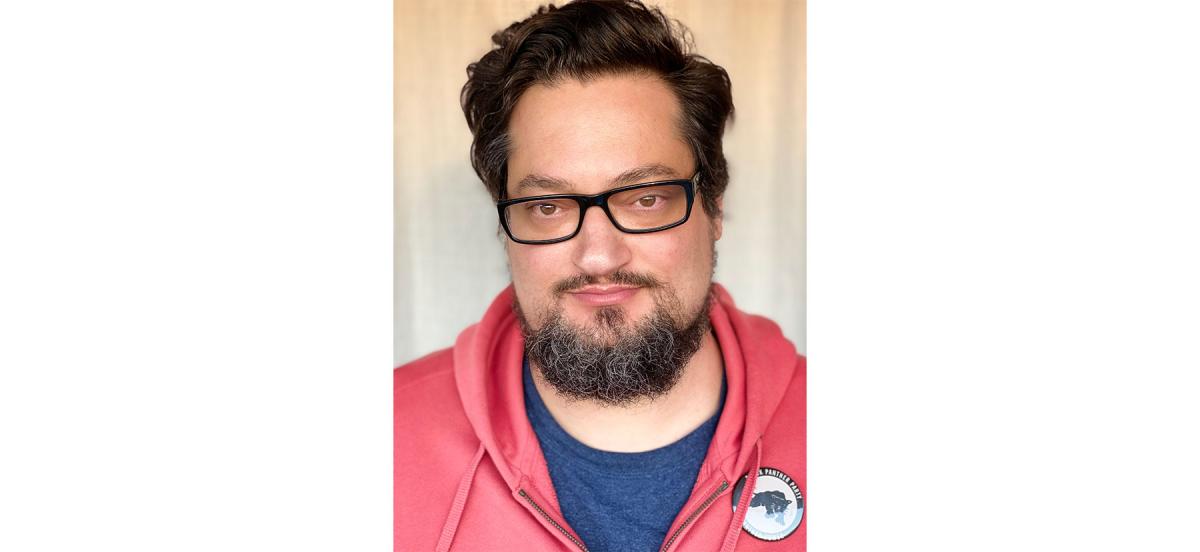Will Berson '98: Oscar Nominee

Will Berson '98 worked in television as a writers’ assistant on Arrested Development and a writer on Scrubs, but as co-writer of Judas and the Black Messiah he earned his first Oscar nomination.
Details
Berson is one of the screenwriters of Judas and the Black Messiah, which tells the story of the 1969 assassination of 21-year-old Illinois Black Panther Party Chairman Fred Hampton and the FBI informant who betrayed him.
Will Berson ’98 owns a single winter jacket that has remained mostly untouched since he moved to Los Angeles two decades ago. It finally came in handy in December 2019, when he flew to Cleveland to watch two weeks of shooting for Judas and the Black Messiah, a film he cowrote with director Shaka King.
“My first shoot was at night in an abandoned, unheated church,” he recalls. “Much of the crew wore snowsuits. Twenty years in L.A. left me soft and unprepared.”
Rewind to summer 2014, when back-to-back police killings of two unarmed Black men, Eric Garner and Michael Brown, set Berson off. For years, he’d considered writing a screenplay about the government-orchestrated assassination of 21-year-old Illinois Black Panther Party Chairman Fred Hampton in 1969—a story he’d heard from his parents, Bob Berson ’65 and Robin Berson BMC ’67. The deaths of Garner and Brown spurred him to start typing.
“My parents always tried to instill in me values about social justice and awareness of injustices,” says Berson, who has worked in television as a writers’ assistant on Arrested Development and a writer on Scrubs.
“Ultimately, with the ubiquity of cell phone cameras, every few weeks there was new footage of another Black man, woman, or child being murdered by the police, and it felt necessary to tell Fred Hampton’s story to emphasize that these horrible things that are happening are not outliers—they are the status quo.”
Unbeknownst to Berson, a friend passed along his completed script, which reached King—who had been planning a similar project with writer-actors Kenny and Keith Lucas. They merged efforts and got the movie made: Judas and the Black Messiah, starring Daniel Kaluuya as Hampton and LaKeith Stanfield as the FBI informant who betrayed him, premiered at the 2021 Sundance Film Festival and streamed on HBO Max in February.

The project is the first about Hampton to come to fruition, Berson says, due to a “real and concerted effort to erase him” as well as reluctance from Hampton’s partner, Akua Njeri, and son, Fred Jr., whom Njeri delivered three weeks after attempting to shield a sleeping Hampton with her body during the raid that killed him.
“It is by design that there is little written or taught about Fred Hampton, and understandably, the family doesn’t trust Hollywood,” Berson says. Getting their blessing was a protracted process. “The most intense point was when I met Akua and Fred Jr. in Fred Sr.’s childhood home in Chicago. Looking into their eyes and hearing their stories—the realness of what we were doing hit home.”
Sharing Hampton’s story with the world matters most to Berson, but a welcome bonus has been the critical acclaim the film has received—along with five Oscar nominations, including one for best original screenplay. The positive reception has served as a sort of salve for Berson and his family following the death of his sister, Jessica Berson ’94, from cancer in August 2019.
“My parents’ enthusiasm for the movie is genuine, but there’s also this component of us being desperate for anything good to happen,” Berson says. “This whole experience has been super bittersweet, because I just want to talk about it with my sister.”
As for what’s next, Berson is in the process of pitching a couple of TV shows and a sci-fi feature. A survivor of a congenital heart defect that has required multiple surgeries, he also continues routine checkups with his cardiologist, Kevin Shannon ’83, who founded a camp for children with heart disease where Berson used to volunteer as a counselor.
“What struck me about all the kids who’d faced heart problems was how completely empathetic they were,” he remembers. “That is a requisite quality for an artist of any medium. Who knows—maybe that’s part of why I do what I do?”



